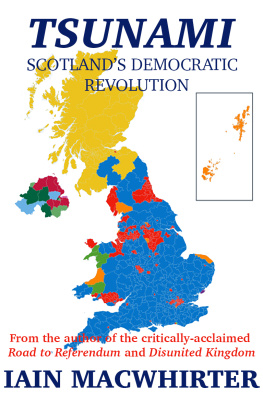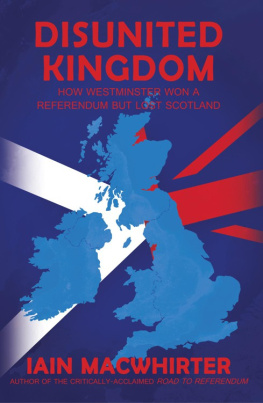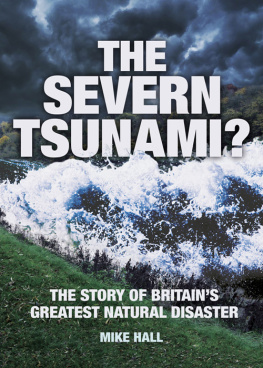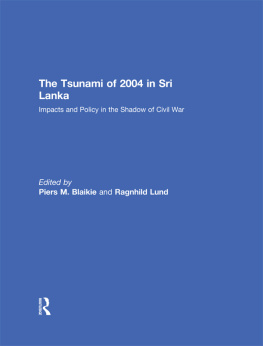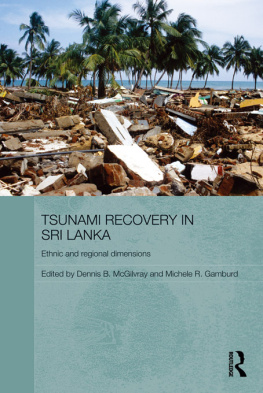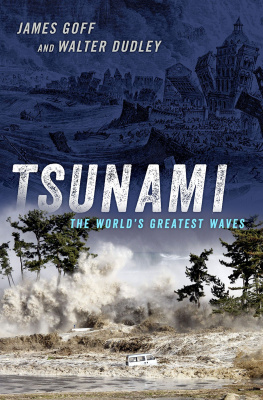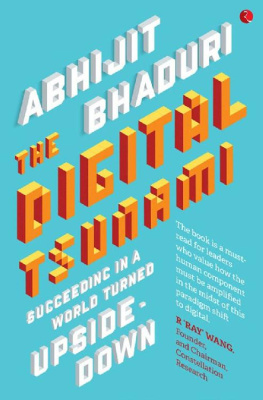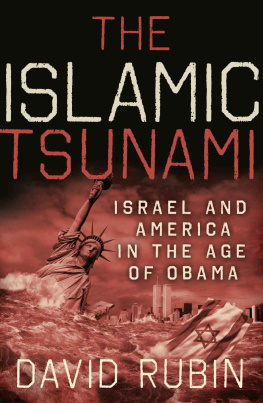Macwhirter - Tsunami
Here you can read online Macwhirter - Tsunami full text of the book (entire story) in english for free. Download pdf and epub, get meaning, cover and reviews about this ebook. year: 2015, publisher: Cargo Publishing (UK) Ltd, genre: Politics. Description of the work, (preface) as well as reviews are available. Best literature library LitArk.com created for fans of good reading and offers a wide selection of genres:
Romance novel
Science fiction
Adventure
Detective
Science
History
Home and family
Prose
Art
Politics
Computer
Non-fiction
Religion
Business
Children
Humor
Choose a favorite category and find really read worthwhile books. Enjoy immersion in the world of imagination, feel the emotions of the characters or learn something new for yourself, make an fascinating discovery.
- Book:Tsunami
- Author:
- Publisher:Cargo Publishing (UK) Ltd
- Genre:
- Year:2015
- Rating:5 / 5
- Favourites:Add to favourites
- Your mark:
- 100
- 1
- 2
- 3
- 4
- 5
Tsunami: summary, description and annotation
We offer to read an annotation, description, summary or preface (depends on what the author of the book "Tsunami" wrote himself). If you haven't found the necessary information about the book — write in the comments, we will try to find it.
Tsunami — read online for free the complete book (whole text) full work
Below is the text of the book, divided by pages. System saving the place of the last page read, allows you to conveniently read the book "Tsunami" online for free, without having to search again every time where you left off. Put a bookmark, and you can go to the page where you finished reading at any time.
Font size:
Interval:
Bookmark:
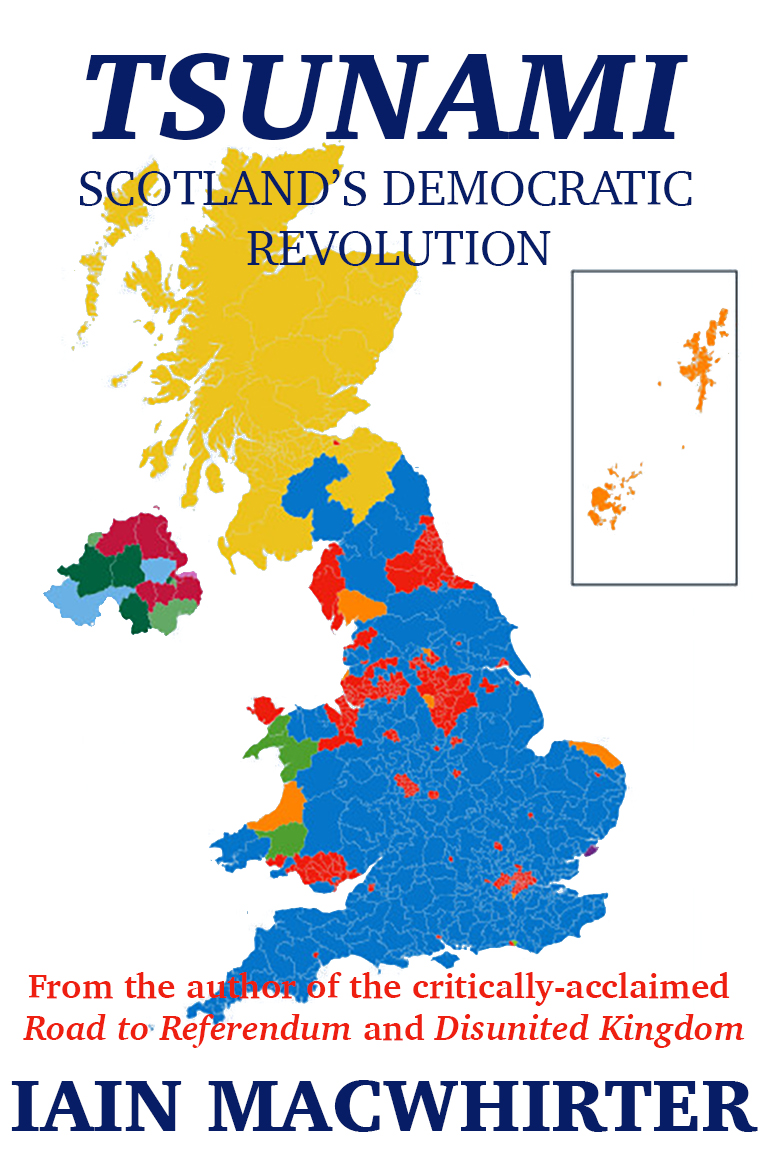
Introduction
Tsunami, earthquake, landslide, extinction-level event the Scottish political world was bereft of superlatives to describe the 2015 General Election that swept away the Scottish Labour Party. It was the most serious electoral upset in Scotland since at least 1931 and has drawn comparisons with the 1918 Sinn Fein landslide in Ireland, though the circumstances are very different. This election drew a line under Labours half century-long dominance of Scottish politics. But it did much more than that. The 2015 General Election raised the United Kingdoms constitutional crisis to an altogether higher level. The 56 SNP MPs sitting in Westminster as the third largest UK party poses the Scottish question in a form which the UK political establishment can no longer ignore.
Only twenty years ago, a result like this would have been regarded by the SNP, and probably by Westminster, as a mandate for independence. It is not. Scotland voted to remain within the UK in the independence referendum of 2014. As the First Minister Nicola Sturgeon made clear, even if the SNP had won all 59 Scottish seats it would not have been justification for another referendum. However, it is the clearest demonstration that the constitution of the United Kingdom must change and must do so without delay. It would seem that only the most radical form of home rule, often called devo max, within a new federal United Kingdom, could conceivably now satisfy Scottish demands for autonomy and prevent Scotland going the final step towards independence. There seems very little prospect of Westminster reforming itself in time.
In Road to Referendum (Cargo, 2013/2014) I explained how formal political independence is a very novel aspiration in Scotland, which had remained a relatively content partner in the Union really until the 1990s. In Disunited Kingdom: How Westminster Won a Referendum but Lost Scotland (Cargo, 2014) I explored how the experience of the 2014 referendum campaign, with its unprecedented levels of political engagement, transformed Scotlands attitude to the UK. In this book I ask whether the events of 2014/15 constitute a revolutionary challenge to the established political order which will lead to the end of the Union.
It was the BBCs political presenter and author Andrew Marr who first noted during the 2015 General Election campaign that Scotland appeared to be going through something like a national revolution. It seemed a bit of an exaggeration at the time. We dont do revolution here. The word evokes images of violent overthrow; of barricades and broken heads. But I increasingly believe he was right to pose it in revolutionary terms, because this is a fundamental struggle now over the location of political power. Election landslides have consequences, and one is that there is now a conflict of legitimacy between Westminster and Holyrood.
A glance at the new political map of the UK shows that the old politics of class has been replaced by the politics of nation. The Scottish independence movement is similar in content to the left-wing populist movements like Podemos in Spain and Syriza in Greece, but very different in form. The Scottish National Party has occupied the radical space vacated by the mainstream social democratic party, Labour. It has benefited from popular revulsion with austerity economics, voter disengagement from establishment politics, and the new opportunities for ideological discourse and political organisation presented by social media.
But the SNP is not Podemos or Syriza. It is both an insurgency and also an established party of government. Some of its policies on business taxes, law and order, and local taxation could even be described as conservative. In Chapter One I look at how Nicola Sturgeon managed this contradiction during the general election, and how the spectre of the SNP menace raised by the UK press and the Conservative Party, helped unite Scotland electorally behind the Nationalist party.
Chapter Two follows one of Scotlands new MPs, Tommy Sheppard, a former assistant secretary of the Scottish Labour Party, as he secured what was one of Labours safest seats, Edinburgh East, on a swing of 29%. Sheppard does not describe himself as a nationalist in the conventional sense and his political philosophy is an insight into how the new SNP likes to think of itself. I then look at the diverse backgrounds of the rest of the 56 new SNP MPs to try to understand what makes civic nationalism tick in Scotland.
Chapter Three examines the career of the First Minister Nicola Sturgeon, who emerged during the General Election as the most popular leader not only in Scotland but, in some opinion polls, the UK. During the campaign she became arguably the most articulate voice of social democracy in Britain. Her call for a progressive alliance of parties in Westminster was somewhat ironic since her party wishes Scotland to leave it. Having achieved near celebrity status since she took over from Alex Salmond, I suggest that her adoption of what she calls utilitarian nationalism marks her out as a fundamentally different kind of nationalist to her predecessor.
Chapter Four examines the performance of Labours former Scottish leader Jim Murphy. Some said he was the right man on the wrong side of history a capable politician who did his best. I argue that his opportunist attempts to outflank the SNP on the left were unconvincing and his subsequent lapse into the rhetoric of the defunct Better Together campaign made a significant contribution to the scale of Labours defeat. However, Jim Murphys re-adoption of universalism in welfare policies and his new Clause Four which supposedly gives the Scottish party total autonomy in policy could provide the basis for a new Scottish Labour party.
Following this election defeat there is no necessary way back for Labour and it could suffer Pasokification, the fate of the Greek social democratic party Pasok, as the SNP colonises the ground on the Scottish centre and centre left. I suggest that to revive its radical soul Labour could look to the tradition of great Scottish Labour figures from the twentieth century like Tom Johnston and Manny Shinwell and reinvent itself as the Independent Labour Party. However, the party appears to be going in the opposite direction and seems content to remain a branch office of UK Labour.
The SNPs success has led to fears about Scotland becoming a one party state, and while this is unlikely to be the case because the Scottish Parliament is elected on proportional representation, there are obvious risks when one party dominates a nations politics. All successful governments become an establishment eventually. In Chapter Five I ask why the putative Yes Alliance did not get off the ground in 2015 despite well meaning efforts to create an electoral alternative to the SNP. Organisations like the Radical Independence Campaign, Hope over Fear, Women for Independence, Common Weal, and National Collective arose during the referendum campaign and mostly continue to function as non-party supporters of independence. I assess the prospects for a new left-wing Scotdemos party of the Left, if and when the SNP comes to be regarded as the political establishment in Scotland. The Left Project will only work if the various groupings can overcome their proclivity for factionalism and infighting.
In the final chapter I look at what happens next. An early referendum has been rejected by Nicola Sturgeon, to the disappointment of many SNP supporters. I examine whether Scotland has already achieved what some commentators call independence in the mind. This is the idea that a new generation has now taken over Scottish culture and politics and is already behaving as if Scotland were an independent country. However, there must be limits to Scotlands gradualist process of nation-building and it will eventually confront the realities of power in the UK state. Failing a radical constitutional reform of the UK, the Scottish Parliament seems destined to assume full control of matters like economic policy. This is unlikely to be a consensual process.
Font size:
Interval:
Bookmark:
Similar books «Tsunami»
Look at similar books to Tsunami. We have selected literature similar in name and meaning in the hope of providing readers with more options to find new, interesting, not yet read works.
Discussion, reviews of the book Tsunami and just readers' own opinions. Leave your comments, write what you think about the work, its meaning or the main characters. Specify what exactly you liked and what you didn't like, and why you think so.

